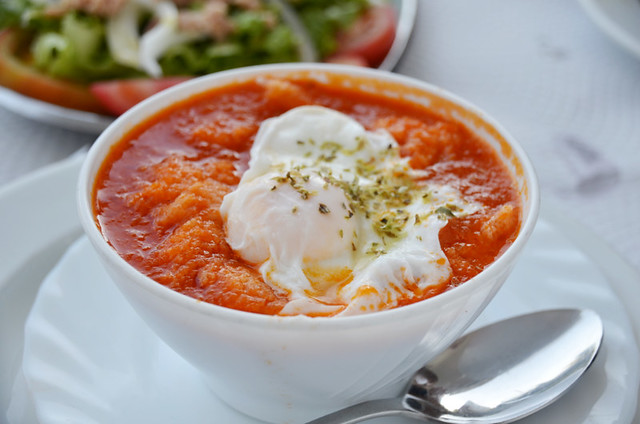The problem with vegetarian food is the label.
The other day on Facebook I mentioned we’d made some Cornish pasties that were delicious, then I also said they were vegetarian ones. A friend, who is into his food, commented that we’d lost him at ‘vegetarian’.

And that one example speaks volumes about the problem with labels. We live in a label-obsessed society. It’s out of control, partly thanks to social media where it’s too easy to slap on labels willy-nilly, and partly due to marketing forces. (Note: rambling old bloke alert) When I was but a lad, the cheapest footwear for sports lesson were baseball boots. I got through loads of them. Now similar-looking boots are called Converse. That label has exploded the price of what were once the go-to shoes when you didn’t have a lot of money.
Labels. It’s all about labels. People who succumb to judging by labels alone are easy prey for the puppeteers yanking those strings. Life is far too complicated to define everything by a simplistic label, and that includes food.

I know a lot of people who balk at the idea of vegetarian food, as if the very mention of might be contagious. Maybe they’re worried the next time they bite into a meaty fillet their taste-buds will have become infected and the flavours will disgust rather than delight? Who knows? But some people (some meat-eaters) become unreasonably defensive when vegetarian nosh is mentioned.
I’m not vegetarian, but I do eat a lot of dishes that don’t feature meat. I do this for one reason and one reason only. Because they are tasty.
When I first tried the vegetarian Cornish pasties referenced earlier, their flavours blew me away. In 1986 I was naïve in culinary terms, a wet-behind-the-ears twenty-something from a small Scottish island. The pasties, plus a few other non-meat dishes prepared by my veggie housemates, changed my life. The scales fell away from my eyes. They weren’t vegetarian. They weren’t non-meat. They were simply bloody marvellous pasties.

And therein lies the key. The term ‘vegetarian’ on a menu may be a helpful signpost for hungry vegetarians, but it can also be like a crucifix to a vampire for those meat-eaters who’ve let labels dictate what they choose from a menu. Far better are menus which just identify which dishes are suitable for non-meat eaters. They don’t arouse quite the same levels of suspicion.
In parts of Portugal, sopa alentejano is a regular on the soup part of menus, so visitors will try it irrespective of their culinary preferences. It doesn’t have to be labelled vegetarian to not have any meat in it.

You might walk into a Bistrot de Pays in Provence and be presented with a starter of figs and goats cheese; be faced with a selection of tapas in Spain that includes pimientos de Padrón, spinach croquettes, grilled cheese drizzled with honey, papas arrugadas and mojos (in the Canary Islands); or tuck into a platter of Greek mezes which includes spanakopita, hummus, tzatziki, and Greek salad. Not a chunk of meat in sight, and yet there are some who turn up their noses at the idea of vegetarian food who would happily tuck into all of these simply because they are examples of very good regional cuisine.

Think about what is arguably the best cuisine in Europe, if not the world – Italian. Even in countries where nearly every restaurant serves traditional food of that country, you will often still find an Italian restaurant, or Italian food of some sort. On our honeymoon in Sri Lanka just about everything was alien to us. But the restaurant outside our hotel in Negombo served pizzas as well as Sri Lankan dishes.
The best risottos don’t include meat, neither do any number of pasta and sauce dishes, nor the most authentic pizzas. But you don’t find many folk saying ‘that’s vegetarian rubbish, I ain’t touching any of that,’ and that’s because in their minds they haven’t slapped on a big label with ‘vegetarian’ scrawled across it.

It’s all about perceptions, and often these can be misguided or misinformed. Labels are barriers, they close doors. When it comes to gastronomy, there’s food which is tasty and there’s food which isn’t. Anyone who makes a decision about something like that before they actually try and taste is going to miss out on an awful lot of good culinary experiences; maybe more than just culinary ones if they apply the same approach to other aspects of life.
There’s an experiment I’d like to try out in a pizza joint. Get a waiter to say to customers “There are two specials tonight – vegetarian pizza and quatro formaggi. Who wants the vegetarian, and who wants the formaggi?” It would be interesting to see how people answered.




Be the first to comment